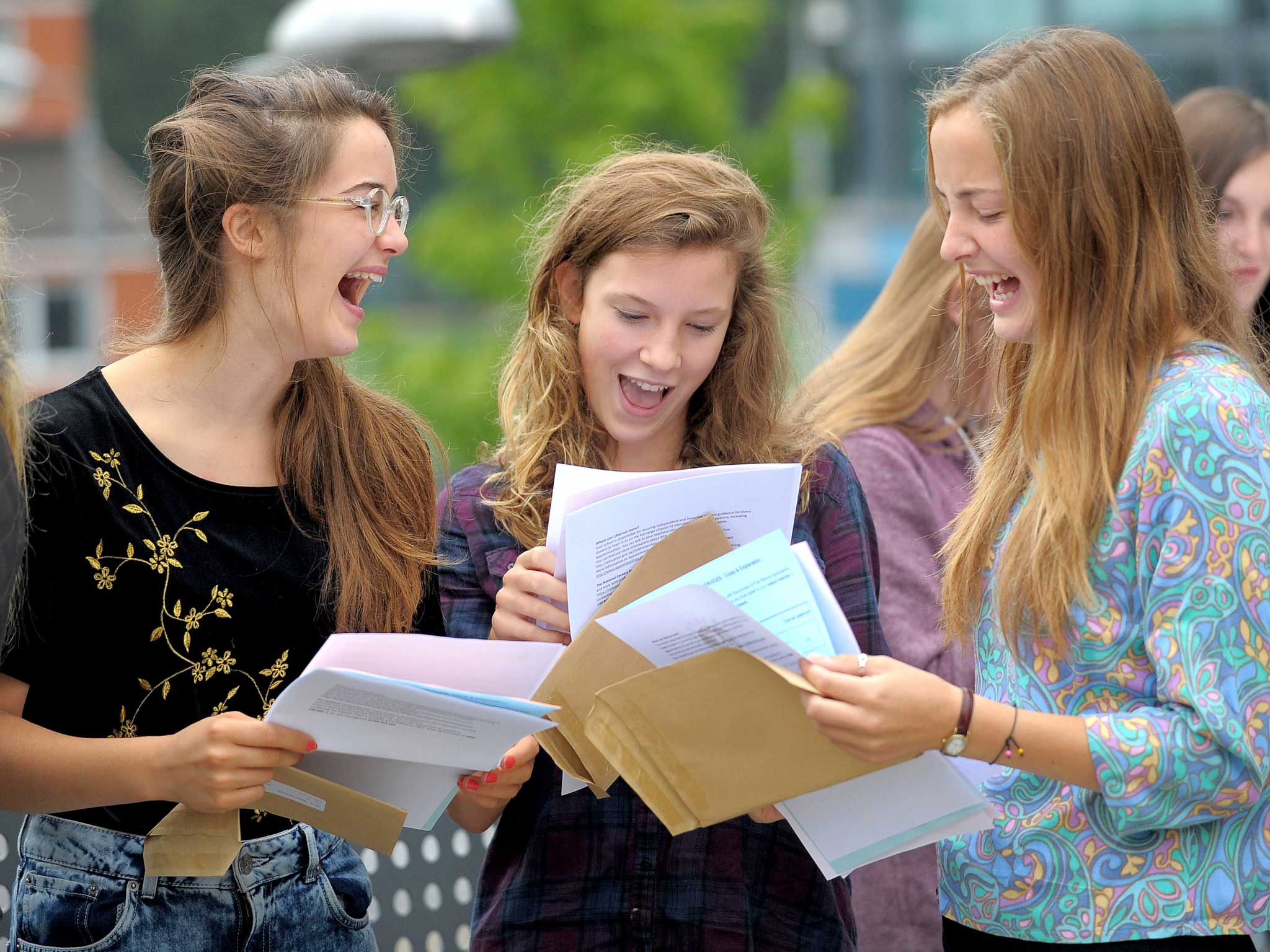GCSE results 2013: Major slump in top-grade passes revealed as more pupils take exams early

Your support helps us to tell the story
From reproductive rights to climate change to Big Tech, The Independent is on the ground when the story is developing. Whether it's investigating the financials of Elon Musk's pro-Trump PAC or producing our latest documentary, 'The A Word', which shines a light on the American women fighting for reproductive rights, we know how important it is to parse out the facts from the messaging.
At such a critical moment in US history, we need reporters on the ground. Your donation allows us to keep sending journalists to speak to both sides of the story.
The Independent is trusted by Americans across the entire political spectrum. And unlike many other quality news outlets, we choose not to lock Americans out of our reporting and analysis with paywalls. We believe quality journalism should be available to everyone, paid for by those who can afford it.
Your support makes all the difference.A major slump in the GCSE pass rate is revealed today with the percentage of pupils getting five top grade A* to C passes suffering its biggest fall in the history of the exam.
More than 600,000 teenagers received their results this morning, as figures showed the pass rate had fallen by 1.3 percentage points to 68.1 per cent. A* grade passes were also down by 0.5 percentage points to 6.8 per cent.
The proportion of GCSEs awarded at least a C grade has fallen for the second year running, official figures from the Joint Council for Qualifications (JCQ) have revealed.
Exam boards pinned the blame for the slump on the rising numbers of 15-year-olds taking GCSEs early, with figures rising by 39 per cent. Their grades were 10 per cent lower than older pupils.
"What we're trying to say is early entry doesn't benefit the students," said Mark Dawe, chief executive of the OCR exam board. "Results are lower for them.
"These qualifications are designed for 16-year-olds."
Girls continued to out-perform boys, scoring higher results at A* and A*-C across all subjects.
A breakdown revealed English, maths and science results were all down. In English, 63.6 per cent of entries gained a C or higher, down from 64.1 per cent last summer.
This comes amid a rise in the number of younger students taking GCSE English, JCQ said. This summer there were 61,000 more entries for the subject and of these more than two-fifths (41.9 per cent) were from pupils aged 15.
In maths, 57.6 per cent of entries scored an A*-C grade, compared to 58.4 per cent in 2012.
There has been a 7.6 percentage point fall in the proportion of entries awarded a C or higher in GCSE science. The science fall was easiest to predict with physics, chemistry and biology all made harder this year.
The figures also showed a big rise in the number of candidates put in for multiple entries in the same subject as desperate heads tried to secure them a C grade pass in at least one to improve their school's ranking in league table.
However, the bright spot was a major increase in the take up of languages. Entries for French, German and Spanish were up 16.9 per cent largely as a result of the Education Secretary Michael Gove's new English Baccalaureate league table ranking.
Subscribe to Independent Premium to bookmark this article
Want to bookmark your favourite articles and stories to read or reference later? Start your Independent Premium subscription today.
Join our commenting forum
Join thought-provoking conversations, follow other Independent readers and see their replies
Comments